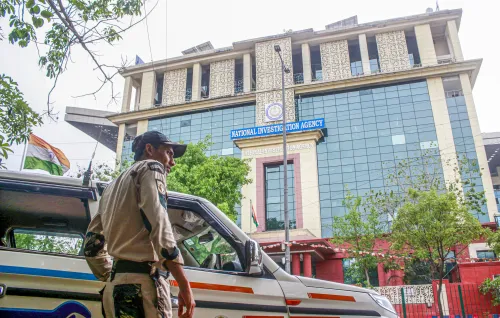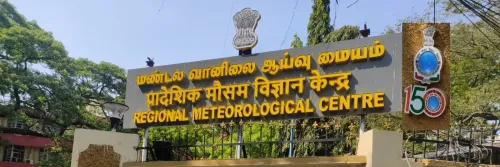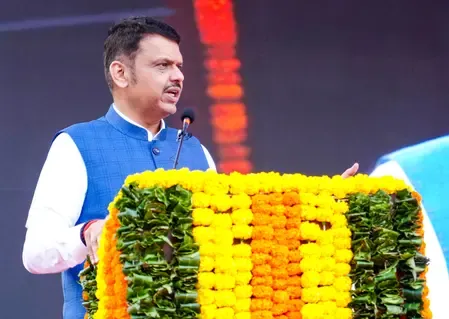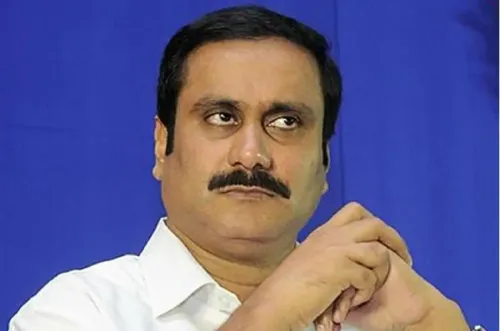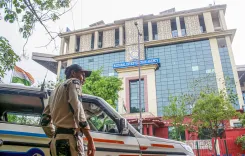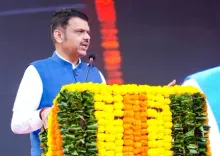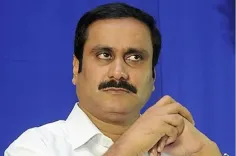Should Political Parties Uphold the Dignity of Legislatures?
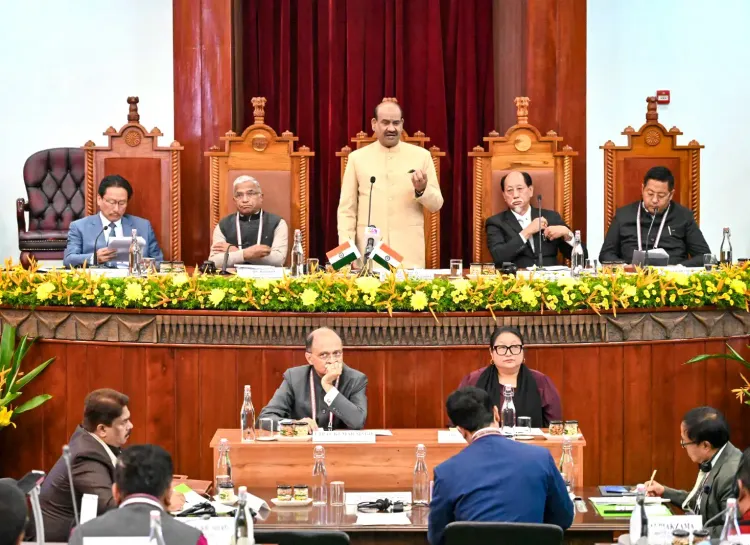
Synopsis
Key Takeaways
- Upholding the dignity of legislative institutions is essential.
- Public engagement is critical for effective governance.
- Legislatures should adopt digital systems for transparency.
- Cooperation between Centre and state enhances governance.
- Focus on sustainable development is vital for the Northeast.
Kohima, Nov 10 (NationPress) Lok Sabha Speaker Om Birla made a compelling call to all political factions to uphold the dignity of legislative bodies by ensuring their smooth and orderly operations.
He highlighted that democracy offers significant avenues for raising issues, voicing concerns, and engaging in debates through peaceful, well-structured, and informed discussions.
While addressing the 22nd Annual Commonwealth Parliamentary Association (CPA), India Region, Zone –III, Conference Plenary inaugural session in Kohima, Birla warned that “planned disruptions not only undermine democratic processes but also rob citizens of meaningful deliberation and accountability.”
Looking ahead to the Winter Session of Parliament starting December 1, the Speaker urged all political parties to ensure the smoothtransparent governance and in designing welfare-oriented public policies.
The theme for the conference plenary session was ‘Policy, Progress and People: Legislatures as catalysts of change’.
Birla expressed optimism that fruitful discussions during the conference would result in concrete action plans aimed at fortifying the legislatures of the Northeast, making them more accountable, effective, and people-centric.
Inaugurating the CPA India Region Zone-III Conference, the Speaker emphasized that legislatures are pivotal in translating public opinion into policy. He stated that their responsibilities extend beyond mere law-making; they must also transform people’s aspirations and concerns into actionable policies.
Birla underscored that inclusive and sustainable development can only be achieved through active public participation. True progress, he noted, happens when citizens engage directly in the democratic process. Therefore, elected representatives must ensure that citizens’ voices are genuinely reflected in policymaking.
Focusing on the transformative power of new technologies and innovations in making democracy more accessible, Birla remarked that many legislatures have transitioned to being paperless and are adopting digital systems. He reiterated that “the people of India are the bedrock of our democracy, and our Constitution-makers placed this principle above all.”
He accentuated that transparency and accountability are fundamental to democratic governance. The Lok Sabha Speaker called on all legislative entities to enhance public engagement in law-making by implementing measures like live telecasting of proceedings, offering user-friendly digital platforms, and developing systems for better public access.
“When public opinion shapes policy in any state,” Birla stated, “that state achieves continuous and sustainable development.” Commending the significant digital transformation occurring within the legislatures of the Northeastern region, he noted that such initiatives not only improve efficiency and transparency but also render legislative processes more accessible and citizen-centric.
While cautioning against the reckless use of emerging technologies, particularly Artificial Intelligence (AI), Birla encouraged legislators to utilize AI in a manner that enhances transparency, fortifies democratic processes, and does not disrupt legislative functions.
Discussing Centre-state relations, the Speaker mentioned that while each government tier operates within clearly defined constitutional frameworks, effective cooperation is crucial for attaining tangible outcomes. He added that constructive dialogue between the Centre and the states not only bolsters governance but also ensures policies are more responsive, inclusive, and aligned with regional priorities. He observed that recent years have seen improved coordination leading to significant advancements in infrastructure, connectivity, and public services throughout the Northeastern region.
Birla noted that in alignment with Prime Minister Narendra Modi’s vision, ongoing efforts are being made to position the Northeast as a development hub and a focal point of India’s Act East Policy. He emphasized the necessity for a comprehensive action plan for the region's overall development, highlighting the importance of considering its unique geographical conditions and climate-related challenges.
He stated that such a plan must specifically address emerging climate threats and natural disasters that profoundly impact livelihoods and infrastructure. Underlining the importance of sustainable and inclusive growth, Birla insisted that Northeast development strategies must incorporate climate resilience, green infrastructure, and active community involvement to ensure long-term advancement.
He further asserted that collaboration among the Centre, State governments, and local communities is essential to tap into the region’s vast potential while preserving its rich biodiversity and cultural heritage. Expressing pride in the vibrant democratic practices within the region, Birla noted that all Northeastern legislatures have upheld the tradition of collective deliberation and decision-making while remaining attuned to local needs and aspirations.
He highlighted that these legislatures are continually working to enhance accountability and transparency in governance, embodying the true spirit of participatory democracy. Birla pointed out that rapid progress is evident in infrastructure development, particularly in road, rail, and air connectivity across the Northeast. He stated that in accordance with the Prime Minister’s vision, concerted efforts are being made to integrate the Northeastern region into the national development framework.
Stressing the immense developmental prospects of the region, Birla asserted that its vibrant culture, rich traditions, and natural beauty make it truly distinctive. He emphasized that promoting local products, arts, culture, and traditional crafts can significantly contribute to achieving the goals of an Atmanirbhar Bharat (self-reliant India).
The Speaker urged legislatures to implement policies that foster industry and entrepreneurship, thereby creating greater opportunities for local communities and facilitating broad-based economic empowerment.
He also extended his best wishes to all delegates ahead of the forthcoming Hornbill Festival, describing it as a global celebration of Nagaland’s culture, resilience, artistry, and community spirit.

